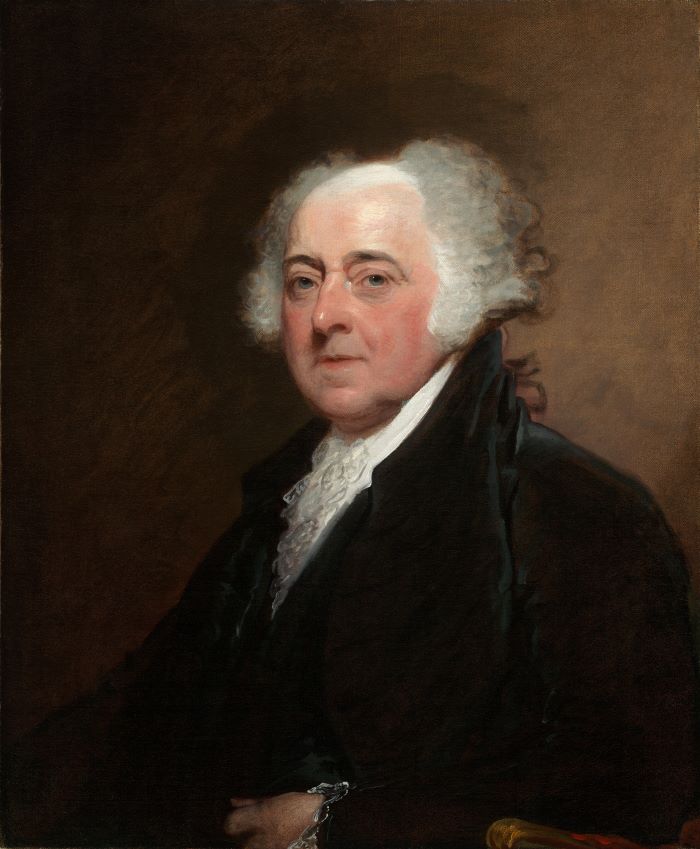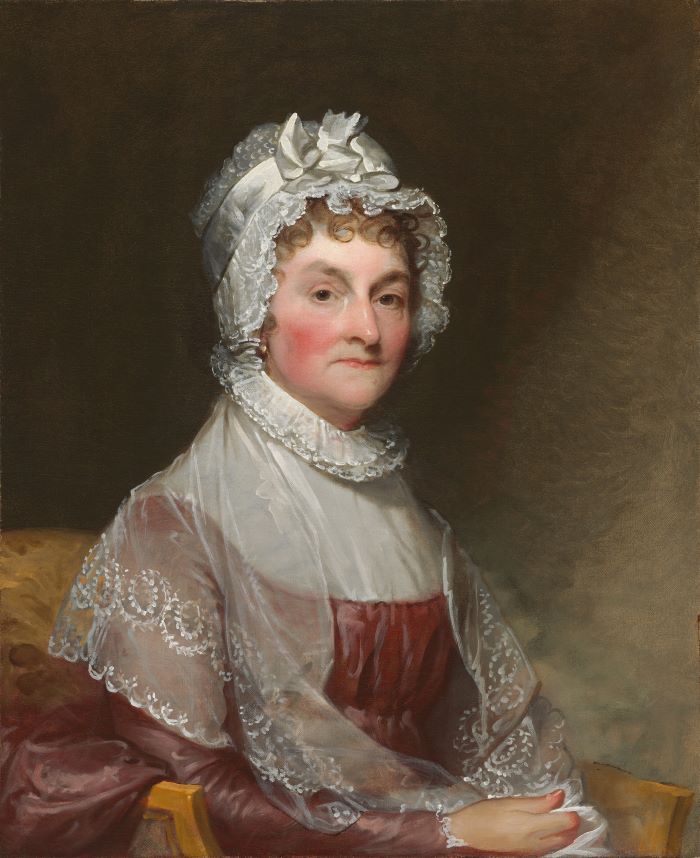- About MAA
- Membership
- MAA Publications
- Periodicals
- Blogs
- MAA Book Series
- MAA Press (an imprint of the AMS)
- MAA Notes
- MAA Reviews
- Mathematical Communication
- Information for Libraries
- Author Resources
- Advertise with MAA
- Meetings
- Competitions
- Programs
- Communities
- MAA Sections
- SIGMAA
- MAA Connect
- Students
- MAA Awards
- Awards Booklets
- Writing Awards
- Teaching Awards
- Service Awards
- Research Awards
- Lecture Awards
- Putnam Competition Individual and Team Winners
- D. E. Shaw Group AMC 8 Awards & Certificates
- Maryam Mirzakhani AMC 10 A Awards & Certificates
- Two Sigma AMC 10 B Awards & Certificates
- Jane Street AMC 12 A Awards & Certificates
- Akamai AMC 12 B Awards & Certificates
- High School Teachers
- News
You are here
Quotations in Context: Adams
“I must study politics and war that my sons may have liberty to study mathematics and philosophy. My sons ought to study mathematics and philosophy, geography, natural history, naval architecture, navigation, commerce, and agriculture in order to give their children a right to study painting, poetry, music, architecture, statuary, tapestry, and porcelain.”
In 1780, John Adams returned to Paris as the new minister empowered by the Continental Congress to negotiate treaties concerning both peace and trade with Great Britain. Since such negotiations would not take place for several years, Adams found himself somewhat at loose ends immediately after his arrival. Among other things, he spent some of his time in seeing the sights of Paris. Unlike his previous mission, when he had arrived in France unable to speak the language and had lived on the outskirts of Paris with Benjamin Franklin, Adams was now residing in the center of Paris at the Hôtel de Valois, close to the Palais Royal and Tuileries gardens.

Painting of John Adams by Gilbert Stuart. Public domain, National Gallery of Art.
Over the course of the spring, Adams sent dozens of letters back to his wife Abigail, who had remained in Braintree, Massachusetts. In a letter posted on May 12, he described some of his explorations:
To take a Walk in the Gardens of the Palace of the Tuileries, and describe the Statues there, all in marble, in which the ancient Divinities and Heroes are represented with exquisite Art, would be a very pleasant Amusement, and instructive Entertainment, improving in History, Mythology, Poetry, as well as in Statuary. Another Walk in the Gardens of Versailles would be useful and agreeable [Adams 1780].

Painting of Abigail Adams by Gilbert Stuart. Public domain, National Gallery of Art.
However—not surprisingly given Adams’ temperament—he would have greatly preferred to be spending his time on more important and productive tasks:
But to observe these Objects with Taste and describe them so as to be understood, would require more time and thought than I can possibly Spare. It is not indeed the fine Arts, which our country requires. The Usefull, the mechanic Arts, are those which We have occasion for in a young Country, as yet simple and not far advanced in Luxury, altho perhaps much too far for her Age and Character.
I could fill Volumes with Descriptions of Temples and Palaces, Paintings, Sculptures, Tapestry, Porcelaine, &c. &c. &c. -- if I could have time. But I could not do this without neglecting my duty. The Science of Government it is my Duty to study, more than all other Sciences: the Art of Legislation and Administration and Negotiation, ought to take Place, indeed to exclude in a manner all other Arts [Adams 1780].
It is at this point that the subject quotation of this column appears. Interestingly, the letter shows that the reference to mathematics was not part of his initial draft of the statement. In the letter, the first sentence of the quotation originally began, “I must study Politicks and War that my sons may have liberty to study Painting and Poetry” [Adams 1780]. However, Adams drew a line through “Painting and Poetry” and replaced it with the familiar “Mathematicks and Philosophy” instead.
The complete contents of this letter can be found in the Adams Family Papers electronic archive maintained by the Massachusetts Historical Society. In addition to the correspondence between John and Abigail Adams, the archive also contains Adams’ (incomplete) autobiography as well as parts of his journals.
Reference
Letter from John Adams to Abigail Adams, post 12 May 1780 [electronic edition]. Adams Family Papers: An Electronic Archive. Massachusetts Historical Society, https://www.masshist.org/digitaladams/archive/.
“Quotations in Context” is a regular column written by Michael Molinsky that has appeared in the CSHPM/SCHPM Bulletin of the Canadian Society for History and Philosophy of Mathematics since 2006 (this installment was first published in November 2009). In the modern world, quotations by mathematicians or about mathematics frequently appear in works written for a general audience, but often these quotations are provided without listing a primary source or providing any information about the surrounding context in which the quotation appeared. These columns provide interesting information on selected statements related to mathematics, but more importantly, the columns highlight the fact that students today can do the same legwork, using online databases of original sources to track down and examine quotations in their original context.
Michael Molinsky (University of Maine at Farmington), "Quotations in Context: Adams," Convergence (April 2023)




